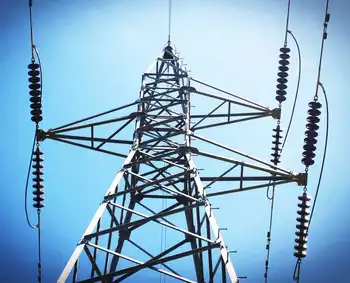Grids anticipate no power problems amid heat wave
Despite the sweltering heat, none of the region's power grid operators forecast demand would break records set during a brutal heat wave in August 2006.
Meteorologists at AccuWeather.com forecast the mercury in New York City, the biggest population center in the region, would reach 99 degrees, breaking the record high for June 9 of 97 degrees set in 1933.
This heat wave started June 7, when high temperatures in the region started to crack 90 degrees. The forecasters expect it will end the evening of June 10 in the Mid-Atlantic and the following night in New England when highs return to more normal levels in the 80s. The normal high for New York City for this time of year is 78 degrees.
"Despite the hot and humid weather, we expect supplies to be adequate to meet the demand plus reserves. We do not expect to break any records or call for load management," said spokeswoman Paula DuPont-Kidd of PJM, which operates the power grid in 13 mid-Atlantic and Midwest states.
PJM forecast demand would reach about 134,200 megawatts June 9 before sliding to 126,000 MW June 10. That is well below the system's all-time peak of 144,644 MW set in August 2006.
New York also expects the peak day to be June 9 with demand forecast to reach about 32,300 MW, which would break last summer's record of 32,169 MW but remain below the state's all-time peak of 33,939 MW set in August 2006.
The New York Independent System Operator, the state grid operator, forecast demand would slide to 31,700 MW June 10 as the heat starts to break.
In New England, the grid operator, ISO New England, forecast demand would reach about 25,980 MW June 9 and 27,020 MW June 10 before sliding the following day. That is still well below the region's all-time record of 28,130 MW set in August 2006.
"We expect normal operating conditions barring any unexpected generation or transmission shutdowns," spokeswoman Erin O'Brien at ISO New England said.
The grid operators in PJM, New York and New England have not yet activated reliability-based demand response programs.
Demand response pays electric customers that sign up to reduce power usage upon request to help ensure the reliability of the grid.
Even though the grid operators have not activated their programs, some utilities may activate their demand response programs for local reliability or economic reasons.
In New England, for example, the grid operator activated its economic demand response program, which is triggered when the ISO expects the price of power to exceed $100 per megawatt-hour.
Customers that signed up for the New England program can get the higher of 10 cents a kilowatt-hour ($100 per megawatt-hour) or the real-time price for the energy they save.
Related News

"Kill the viability": big batteries to lose out from electricity grid rule change
MELBOURNE - Tesla, Snowy Hydro and other big suppliers of storage capacity on Australia’s main electricity grid warn proposed rule changes amount to a tax on their operations that will deter investors and slow the decarbonisation of the industry.
The Australian Energy Market Commission (AEMC) will release its final decision this Thursday on new rules for integrating batteries, pumped hydro and other forms of storage.
The AEMC’s draft decision, released in July, angered many firms because it proposed charging storage providers for drawing power, ignoring a recommendation by the Australian Electricity Market Operator (AEMO) that they be exempt.
Battery maker…





